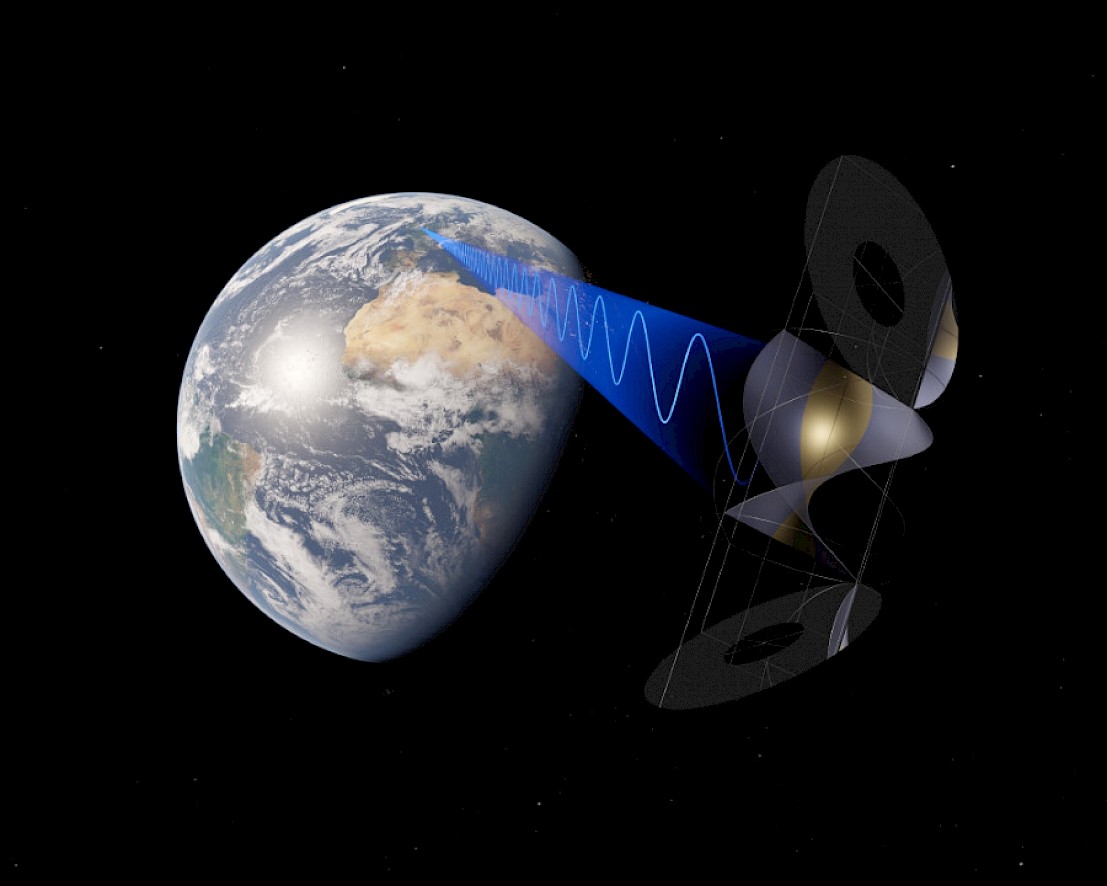Dispatchable Green Energy from Space

For many years, Space-Based Solar Power has often been considered as science fiction – while remaining largely unknown as a real concept to the majority, even to those very familiar with other sources of renewable energy. Since the first detailed NASA/DoE reports from the late 1970’s and early 80’s, studies have repeatedly shown its technical feasibility and significant benefits, but at a historically prohibitive cost.
The three greatest challenges facing humanity are climate change, sustainability and resource depletion – all having their roots in how we produce and distribute energy. Despite assurances that wind and terrestrial solar are cheaper than coal, oil and gas, we are still reliant on the ability of fossil fuels to supply as much power as we need, at the time and place where we need it.
With the advent of new renewable launch vehicles, the CASSIOPeiA Solar Power Satellite leads the economic case for providing affordable, safe, clean, on-demand power to anywhere on (or off) our planet, at a timeframe and scale which could significantly contribute to the goal of net-zero.
Ian Cash, M.Eng, International Electric Company

A graduate from Birmingham University, UK, specialising in Electronics and Computer Science, Cash has over 30 years’ experience providing engineering consultancy to a broad range of industries including Power, Automotive, Aerospace and Defence. His inventing career began in the 1990’s with a miniature electronic altimeter for skydiving, and he has been named since on several patents in various fields.
In 2013, Cash began independent work on a solid-state power beaming satellite, culminating in the HESPeruS concept operating from a Molniya orbit. In 2017 & 2018, Cash filed patents for CASSIOPeiA, which significantly improves on HESPeruS with its ability to deliver continuous power from a range of orbits for less mass, while retaining its solid-state and Sun-facing aspects. CASSIOPeiA has been independently studied for the UK government and ESA, and is now adopted by the UK’s Space Energy Initiative, with a detailed development programme in-place.
Cash has a lifelong interest in space technology and the benefits this has brought to humanity, with a strong belief that the answers to many of Earth’s problems will be found by becoming a truly space-faring civilisation.
Attending lectures
Full video
Slides
The lecture will be preceded by a short presentation from a CSAR PhD Award Winner.
Understanding the spread of tau protein during neurodegeneration.
Dr. Ben Tuck, MRC-LMB, Cambridge
Ben gave an excellent presentation, but unfortunately part of the audio hardware failed and so there is no recording. Sorry!
Thank you for your interest in CSAR and its programme. If you would like to help us maintain our activities at their current level, you can make a donation to CSAR here, via PayPal or a bank card. Your gift will by default go into our general income fund; if you would like it to be used for a specific purpose such as the PhD Students Awards scheme, please let us know at info@csar.org.uk. CSAR is a registered charity run by volunteers.